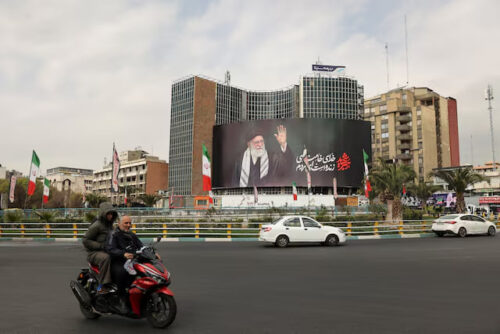
Armenian Foreign Ministry issues a statement responding to Aliyev’s threats
The Ministry of Foreign Affairs of the Republic of Armenia draws the attention of the international community to another warmongering statement made by the President of Azerbaijan Ilham Aliyev on May 28, which are aimed at nullifying the efforts of the Republic of Armenia and the international partners, directed at establishing peace, stability and security in the region.
“Against the UN Charter, the written commitment to refrain from use of force or threat of use of force made by the Trilateral statement of Sochi on October 31, 2022, similar verbal commitments made many times on other platforms as well as ongoing negotiations on normalisation of bilateral relations, the President of Azerbaijan again threatens the Republic of Armenia with use of force and the people of Nagorno-Karabakh with ethnic cleansing.
It is necessary to put on record that the authorities of Azerbaijan continue to violate and ignore the previously reached agreements, including the provisions of the Trilateral statement of November 9, 2020, as well as the fundamental principles of international law. This is evidenced by President Aliyev’s words that by controlling the Lachin corridor, Azerbaijan disrupted the connection between Nagorno-Karabakh and Armenia. Moreover, in the same context, Azerbaijan openly threatens to carry out ethnic cleansing if the Armenians of Nagorno-Karabakh do not “learn lessons” from the blockade of the Lachin corridor.
Unfortunately, violations of agreements and commitments are not limited to this. Instead of starting a dialogue with the representatives of Nagorno-Karabakh within the framework of an international mechanism, the President of Azerbaijan threatens them with revenge and criminal prosecution. At the same time, it is evident that Azerbaijan does not want to address the existing problems, but to move forward on with the principle according to which “there are no Armenians of Nagorno-Karabakh, there is no Nagorno-Karabakh problem.” Such actions also contradict the logic of the ongoing negotiations, including the approaches of the actors who carry a mediation mission for the settlement.
There is no doubt that the recognition of the territorial integrity of Azerbaijan cannot be interpreted as the authority to implement ethnic cleansing against the population of Nagorno-Karabakh. The Republic of Armenia draws the attention of the international community, including the mediating actors, to the fact that the President of Azerbaijan, with his statement, is preparing the ground for another aggressive action against the population of Nagorno-Karabakh and depriving them of the right to live freely, safely and with dignity in their homeland.
It is noteworthy that the President of Azerbaijan not only makes genocidal threats against the population of Nagorno-Karabakh, but also puts under serious doubt the independence and territorial integrity of Armenia. In fact, the President of Azerbaijan challenges the entire civilised community by threatening to occupy new sovereign territories of Armenia by use of force. Moreover, it is emphasised that even the presence of the EU Monitoring Mission along the international border between Armenia and Azerbaijan cannot stop the territorial claims of Azerbaijan against Armenia.
Armenia is resolute in its chosen path of establishing peace in the region. Unfortunately, as can be seen from the aggressive rhetoric and actions of the Azerbaijani authorities, the latter does not see the solution to the problems through the recognition of the territorial integrity of the Republic of Armenia with the borders defined by the Alma-Ata Declaration and addressing the rights and security of the people of Nagorno-Karabakh, but through the use of threats and military force.
In order to prevent such developments, all partners interested in peace and stability of the South Caucasus should make unambiguous and unequivocal assessments,” the statement reads.



